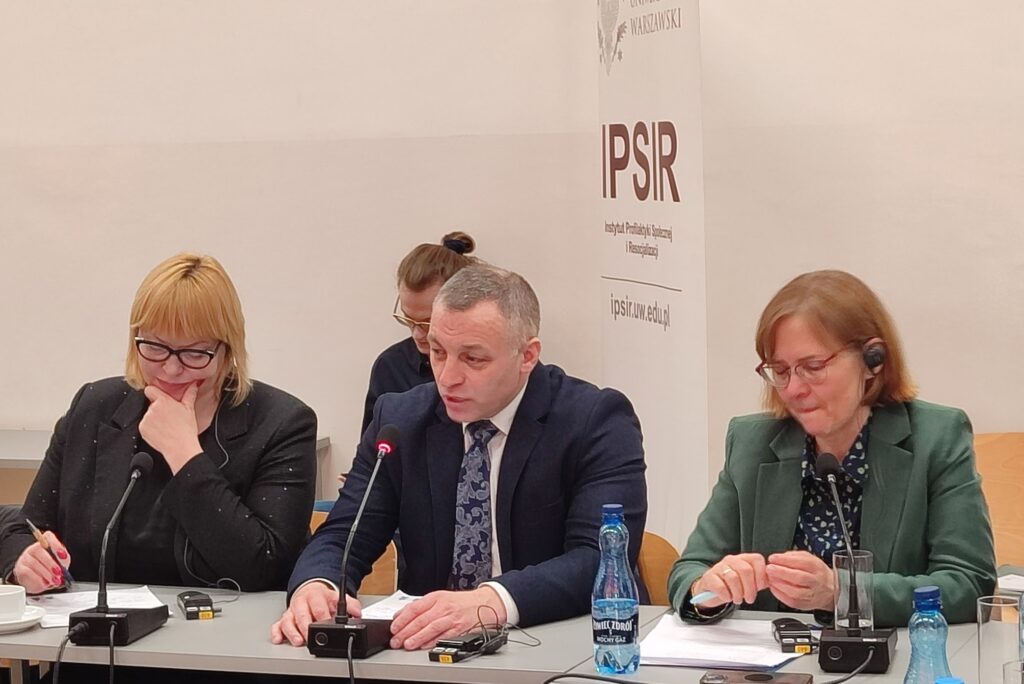During 2025–2026, on behalf of the Ministry of Science and Higher Education of the Republic of Poland, the project “The Influence of the Form of the Political System on the Quality of Functioning of State Institutions: Polish and Ukrainian Experience and Prospects” will be implemented at the Faculty of Applied Social Sciences and Resocialization of the University of Warsaw. The partners of the University of Warsaw within the framework of the relevant initiative from the Ukrainian side will be the Vasyl Stefanyk Precarpathian National University and the I.F. Kuras Institute of Political and Ethno-National Studies of the NAS of Ukraine. From our university, teachers and scientists from the Faculty of History, Political Science and International Relations and the Educational and Scientific Law Institute will be involved in the implementation of the project.
On March 7, 2025, an inaugural scientific seminar was held at the Faculty of Applied Social Sciences and Resocialization with the participation of the Deputy Minister of Science and Higher Education of the Republic of Poland, Andrzej Sheptytsky, which gave rise to the implementation of the initiative. On behalf of our university, the Dean of the Faculty of History, Political Science and International Relations, Ihor Hurak, took part in the event. During his speech, Ihor Hurak emphasized the exceptionally important significance of the proposed project, expressed his gratitude to Professor Agnieszka Dudzińska of the University of Warsaw, who is the head of the project, and Professor Antoni Kaminski of the Polish Academy of Sciences, who initiated it. At the same time, on the one hand, he mentioned the long-standing traditions of constitutionalism in Ukraine and the Republic of Poland, and at the same time drew attention to the significant differences in the political systems of both countries. As an example, he pointed out that in the case of Poland we are dealing with a virtually “cemented” party structure, while in the case of Ukraine in 2019 there was a situation when a party created before the elections was able to gain a majority in the Ukrainian parliament. These and other moments, the unique experience of the functioning of the Ukrainian state in war conditions, testify to the exceptional relevance of the research tasks set by the project participants.

